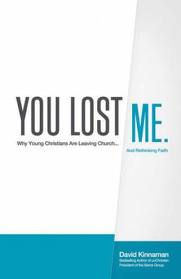 You Lost Me: Why Young Christians Are Leaving Church…And Rethinking Faith David Kinnaman (Baker) $17.99 David Kinnaman was catapulted to fame when he produced for the Barna Group the research that became the bestselling book UnChristian: What a New Generation Really Thinks About Christianity and Why It Matters (Baker; $18.99) which explored what unchurched North American young adults thought about Christianity and church life. I hope you know that book because it is a wonderfully written and powerful glimpse into the religious attitudes of many young adults. Author and leader of Q Ideas Gabe Lyon co-authored it and he and Kinnaman offered lots of hopeful ideas, offering sidebars and excerpts of interviews with lots of very thoughtful and relevant Christian folks who chimed in throughout the book. These interviews and essays from other voices illustrate that the cranky attitude and serious criticisms of evangelical faith that are commonly held by outsiders to the faith are, in fact, only partially true. There are wonderfully creative, interesting, kind and just folks who’s faith catapults them into the thick of contemporary life. So that book is both depressing (so many young adults are convinced traditional faith is unattractive or worse) and hopeful–a lot of good folks are working hard to repair our bad reputation. It’s important and interesting.
You Lost Me: Why Young Christians Are Leaving Church…And Rethinking Faith David Kinnaman (Baker) $17.99 David Kinnaman was catapulted to fame when he produced for the Barna Group the research that became the bestselling book UnChristian: What a New Generation Really Thinks About Christianity and Why It Matters (Baker; $18.99) which explored what unchurched North American young adults thought about Christianity and church life. I hope you know that book because it is a wonderfully written and powerful glimpse into the religious attitudes of many young adults. Author and leader of Q Ideas Gabe Lyon co-authored it and he and Kinnaman offered lots of hopeful ideas, offering sidebars and excerpts of interviews with lots of very thoughtful and relevant Christian folks who chimed in throughout the book. These interviews and essays from other voices illustrate that the cranky attitude and serious criticisms of evangelical faith that are commonly held by outsiders to the faith are, in fact, only partially true. There are wonderfully creative, interesting, kind and just folks who’s faith catapults them into the thick of contemporary life. So that book is both depressing (so many young adults are convinced traditional faith is unattractive or worse) and hopeful–a lot of good folks are working hard to repair our bad reputation. It’s important and interesting.
YOU LOST ME
In that research one of the interesting things that the Barna group found was that many of the unchurched who had disinterest or hostility to the faith were previously active in church and in some cases still saw themselves as active Christians. A phrase they heard regarding these young adults’ sense of their own story went something like this: “I was active for a while. I loved God and cared about my church. But then, you lost me.” Of course, this is no real surprise; every BookNote reader knows somebody like this. The dropout problem is so common that many older church folks just expect it, and some think it is normal for young people to put their faith—or at least their connection to a church—on the shelf for a while. I don’t know about you, but I think this is tragic (both the dropout problem and the church’s casual acceptance of it.)
Mr. Kinnaman continued his research, this time documenting the views and attitudes and  stories of younger adults who were, in fact, raised within the Christian churches, but who have chosen to leave. He wanted to find the church dropouts and hear their stories. Many of us are so, so glad for these findings since we now have more data and more tools to think about this problem that we so seriously care about. We all have intuitions and hunches. We have had conversations about this. We have our own stories, perhaps, and those of our children, our friends, our colleagues or classmates. But beyond these individual episodes, what are the documented trends? What does the research show? What can we make of it? Kinnaman can help, and, because of his own great passion for this topic, he’s a perfect person to interpret the data for us. I couldn’t recommend this book more strongly.
stories of younger adults who were, in fact, raised within the Christian churches, but who have chosen to leave. He wanted to find the church dropouts and hear their stories. Many of us are so, so glad for these findings since we now have more data and more tools to think about this problem that we so seriously care about. We all have intuitions and hunches. We have had conversations about this. We have our own stories, perhaps, and those of our children, our friends, our colleagues or classmates. But beyond these individual episodes, what are the documented trends? What does the research show? What can we make of it? Kinnaman can help, and, because of his own great passion for this topic, he’s a perfect person to interpret the data for us. I couldn’t recommend this book more strongly.
So, many young adults drift from church; of those, some are still on a spiritual journey and many would say they are not. Why is this? Kinnaman uses the punchy phrase (used by more than one of his millennial interviewees) “you lost me” to indicate that these folks were open to faith, perhaps deeply involved in Christian practices and life, and at some point determined that they were no longer on the same page as their adult congregational leaders. Kinnaman is passionate that we must understand the demographics of this cohort and we must “start a conversation” about this crisis of generational loss, and, more importantly, with this cohort themselves. Why are younger Christians disengaging from church?
I found the book to be very well written, really, really engaging, and a godsend for anyone interested in young adults–it is a vital read for those in youth ministry or those who work in campus ministry. Parents who fret about their own grown children or young adults who are sad their their old friends from youth group seem to be no longer walking with the Lord will find much here. The conversational tone is clear, the voices compelling, the insights and proposals very helpful. Kinnaman is a good, good guy, a solid thinker and a real ally for those of us who want to somehow help make faith and Christian discipleship and church involvement a plausible reality for our young friends.
Of course, not everyone who drifts from church–or bolts from church as the case may be—has the same experience or the same (dis) interests. Kinnamam sees three major constellations of disinterest, three sorts of folks who walked away from church. (Each name seems to resonate with a Biblical theme or type, even, so this is really interesting!)
NOMADS, PRODIGALS, EXILES
First there are what the book calls nomads. Although each one has a unique story, these are folks who are still seeking; the still haven’t found what their looking for. Most likely they will say they are “spiritual but not religious” and they just might return to a traditional congregation. Or they might hold to an admixture of new age beliefs, bits borrowed from various world religions, or might just be wandering through a variety of more or less intense beliefs or worldview. Prodigals, however, are another group he found and these are folks who are aware that they have left the church, perhaps for good. They may or may not be bitter (and it is surprising how many are not particularly angry) but they are disappointed. They’ve grown disinterested and they are far from faith. Exiles are another group that the research brings to our attention and, again, it may be a bit surprising to some (or not at all surprising if you are paying attention.) Exiles are those who feel that they still want to follow Christ, they are interested in some sort of discipleship and faith and they believe, rightly or wrongly, that they must reconfigure their faith in ways that traditional congregations find unacceptable. In fact, some said in their interviews that in order to maintain faith in God and a sense of seriousness about the gospel they simply must stay away from the institutional church. These are folks who have dropped out but still see themselves as Christians. They may even be worshiping in a house church or may live in an intentional community or be interested in the emergent faith conversations. Nomads, Prodigals and Exiles. Fascinating, eh? And helpful, I’d say.
Here is a 9 minute video clip of him talking abou
t this.
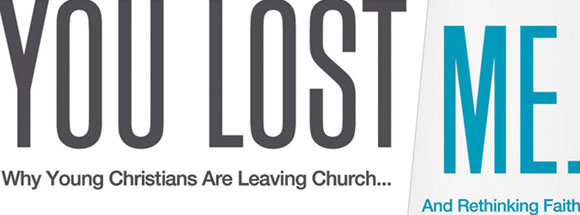
You Lost Me: Why Young Christians Are Leaving the Church… raises these questions for us, and anyone involved in
church—mainline, Catholic or evangelical—should pay attention. For
what it is worth (before anyone gets too defensive) he does not always
lay all the blame on the congregation. Still, there is something going
on, this unprecedented dropout rate, this disaffection with Christianity
in the West, and it is a crisis we must deal with. Knowing the facts
of the matter and hearing the stories is certainly a good step
You Lost Me has some other features as well, good and important information for any of us who are leaders in the church or who care about the integrity of the gospel as it is lived out in our time. For instance, Kinnaman offers some statistics–and one fascinating chart that I can’t stop thinking about—about how different generational cohorts understand the obligations of obeying Biblical injunctions. As you may guess, the bar graph decreases with age: the greatest generation insists that we must do our best to follow the teachings of the Bible. Baby boomers have a bit lower commitment to Biblical obedience and Gen Xers even less so. Of the younger “mosaics” (ages 18-28) who self-identified as Christians less than a third strongly agreed that this was important. Does that make them lax and uncommitted? Or does it indicate that they understand the message of God’s grace, that we cannot earn God’s free gift of love? Do they see the rules of religion as intolerably repressive? Or do they have a good handle on what the relationship is between faith and works? Kinnaman explains much of this and he is very helpful as he explains (for instance) attitudes about sexuality, homosexuality, and marriage, that are typical among young adults.
FIFTY IDEAS
One nice appendix of this important book is a listing of 50 suggestions for “passing on a flourishing, deep-rooted faith” from 50 different authors and leaders, many of whom are writers we know and respect. Listen to the advice from Kenda Creasy Dean, Steve Garber, Walt Mueller, Shane Claiborne, Gabe Lyons, Charlie Peacock, Kara Powell, Donna Freitas, Derek Melleby, David Greusel, Christopher West, Sarah Groves, Rachel Held Evans, Francis Chan, Andrew Root, John Ortberg. And more.
Watch this very cool video clip, a trailer for the project and the book and an invitation to continue working on this. Even those of us who have been at this a while will be glad to hear him say “let’s get this conversation started!” Thanks, David.
SEVEN OTHER RECENT AND IMPORTANT BOOKS ABOUT YOUNG ADULTS
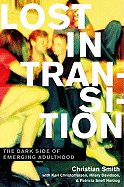 Lost in Transition: The Dark Side of Emerging Adulthood Christian Smith et al (Oxford University Press) $27.95 Well, if Kinnaman does a spectacular job doing basic research through his Barna Group research firm and then popularizing that into usable, enjoyable, insightful books like unchristian and You Lost Me, Christian Smith is his serious big brother. Professor Smith is a research sociologist par excellence and with titles like Moral, Believing, Animals (Oxford University Press) and What Is a Person? (University of Chicago Press) he has made a notable and significant contribution to the social sciences rooted in his ecumenically-minded, catholic faith. This new book, Lost in Transition, is nothing short of magisterial, offering serious and stunning research on the ways in which this young adult cohort has emerged without a clear sense of morals. The book immediately became a conversation topic last month when New York Times columnist and NPR talking head David Brooks wrote about it in a syndicated op ed piece a month ago which whirled around the internet. This new study seems to be a continuation of the major work he and his team did on the faith of young adults which came out in the prestigious Soul Searching: The Religious and Spiritual Lives of American Teenagers (Oxford University Press; $17.95) and the follow up, Souls in Transition: The Religious and Spiritual Lives of Emerging Adults (Oxford University Press; $24.95.) You may know of this exceptional work because of the popular book by Princeton’s Kendra Ceasy Dean which appropriated this research. That amazing book was called Almost Christian: What the Faith of Our Teenagers is Telling the American Church (Oxford University Press; $24.95.)
Lost in Transition: The Dark Side of Emerging Adulthood Christian Smith et al (Oxford University Press) $27.95 Well, if Kinnaman does a spectacular job doing basic research through his Barna Group research firm and then popularizing that into usable, enjoyable, insightful books like unchristian and You Lost Me, Christian Smith is his serious big brother. Professor Smith is a research sociologist par excellence and with titles like Moral, Believing, Animals (Oxford University Press) and What Is a Person? (University of Chicago Press) he has made a notable and significant contribution to the social sciences rooted in his ecumenically-minded, catholic faith. This new book, Lost in Transition, is nothing short of magisterial, offering serious and stunning research on the ways in which this young adult cohort has emerged without a clear sense of morals. The book immediately became a conversation topic last month when New York Times columnist and NPR talking head David Brooks wrote about it in a syndicated op ed piece a month ago which whirled around the internet. This new study seems to be a continuation of the major work he and his team did on the faith of young adults which came out in the prestigious Soul Searching: The Religious and Spiritual Lives of American Teenagers (Oxford University Press; $17.95) and the follow up, Souls in Transition: The Religious and Spiritual Lives of Emerging Adults (Oxford University Press; $24.95.) You may know of this exceptional work because of the popular book by Princeton’s Kendra Ceasy Dean which appropriated this research. That amazing book was called Almost Christian: What the Faith of Our Teenagers is Telling the American Church (Oxford University Press; $24.95.)
Jean Twenge (who wrote Generation Me and other good books on how consumerism affects our youth) says, Smith’s “Lost in Transition is a groundbreaking, compelling, and deeply necessary look at the challenges facing young people today…The results [of their research] are shocking, revealing widespread moral relativsm and precious little civic engagement.” We are obviously very fond of the Kinnaman research on reaching de-churched twenty-somethings. This work on the ethics, values, and moral reasoning of youth is broader and more foundation. For those who are serious about this topic, it is a must-read.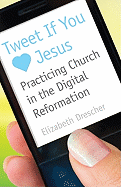 Tweet if You *Heart* Jesus: Practicing Church in the Digital Reformation Elizabeth Drescher (Morehouse Publishing) $20.00 Morehouse is the publishing arm of the Episcopal Church and, as you might guess, offers here a book that brings the wisdom of the ancient and medieval faith into conversation with contemporary theories of cultural change and the realities of new social media. Drescher, who has great interest in spiritual disciplines and practices, has studied spirituality at the Graduate Theological Union in Berkeley. She writes for the online magazine Religion Dispatches. All of this to say that she is an ecumenical, mainline Christian who is very sharp, very funny, and has a very sophisticated way of combining the postmodern and the ancient, all so we can understand the new ways faith is being practiced, especially among youth and young adults. The title is a tad tongue in cheek, of course, and although she is quite enmeshed in new social media, her study is astute and her insights profound. Very nicely done.
Tweet if You *Heart* Jesus: Practicing Church in the Digital Reformation Elizabeth Drescher (Morehouse Publishing) $20.00 Morehouse is the publishing arm of the Episcopal Church and, as you might guess, offers here a book that brings the wisdom of the ancient and medieval faith into conversation with contemporary theories of cultural change and the realities of new social media. Drescher, who has great interest in spiritual disciplines and practices, has studied spirituality at the Graduate Theological Union in Berkeley. She writes for the online magazine Religion Dispatches. All of this to say that she is an ecumenical, mainline Christian who is very sharp, very funny, and has a very sophisticated way of combining the postmodern and the ancient, all so we can understand the new ways faith is being practiced, especially among youth and young adults. The title is a tad tongue in cheek, of course, and although she is quite enmeshed in new social media, her study is astute and her insights profound. Very nicely done.
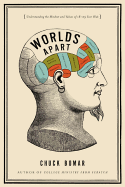 Worlds Apart: Understanding the Mindset and Values of 18-25 Year Olds Chuck Bomar (Zondervan) $14.99 Chuck is a good guy and has a huge heart and amazing passion for doing college ministry. (He has written two books on how large churches near campuses can do young adult outreach ministry among their collegiate neighbors.) Here, he backs up and gives us his most important book yet, a study of this stage of life—what Sharon Parks has called “the critical years.” As the back cover puts it, Bomar brings “understanding, comfort, and direction to all interested in this age group.” Yes, understanding. He gets young adults. Comfort? Well, he is full of hope that God can reach this generation and that we can build meaningful and sustained relationships with this younger cohort. So it may be comforting, I suppose. He offers such clear-headed and practical insight (like “learn to listen”) that it really does give us great encouragement. (Older readers, take note. This really may be a comfort insofar as it will help you with tools to relate to your mosaic-aged friends.) And direction? Oh yeah, he guides us towards paths of understanding, helping us appreciate the mindset and ethos of 21st century college-aged young adults. Huge endorsements from Chap Clark and Dan Kimball on the back, showing that at least evangelical thought leaders are taking this book seriously. You should too.
Worlds Apart: Understanding the Mindset and Values of 18-25 Year Olds Chuck Bomar (Zondervan) $14.99 Chuck is a good guy and has a huge heart and amazing passion for doing college ministry. (He has written two books on how large churches near campuses can do young adult outreach ministry among their collegiate neighbors.) Here, he backs up and gives us his most important book yet, a study of this stage of life—what Sharon Parks has called “the critical years.” As the back cover puts it, Bomar brings “understanding, comfort, and direction to all interested in this age group.” Yes, understanding. He gets young adults. Comfort? Well, he is full of hope that God can reach this generation and that we can build meaningful and sustained relationships with this younger cohort. So it may be comforting, I suppose. He offers such clear-headed and practical insight (like “learn to listen”) that it really does give us great encouragement. (Older readers, take note. This really may be a comfort insofar as it will help you with tools to relate to your mosaic-aged friends.) And direction? Oh yeah, he guides us towards paths of understanding, helping us appreciate the mindset and ethos of 21st century college-aged young adults. Huge endorsements from Chap Clark and Dan Kimball on the back, showing that at least evangelical thought leaders are taking this book seriously. You should too.
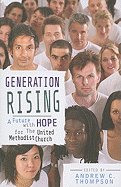 Generation Rising: A Future with Hope for the United Methodist Church edited by Andrew C. Thompason (Abingdon) $16.00 Whether you are United Methodist or not, this collection of essays by some of the Gen X leaders within Methodism is a real book treat. (John Wesley was in his 30s, by the way, when his heart was “strangely warmed.”) There are unique cultural shifts which those who were coming of age in the past decades experiences and as they now rise to adulthood, they’ve got a particular angle of vision within the church. I liked this quote by Will Willimon who noted “Generation Rising made me marvel at the ability of Wesleyan Christianity to reinvent itself in each generation. Here is Wesleyanism and our church imagined as having a future as bright as our noble past.” Granted, this offers the United Methodist church a prophetic challenge from its younger pastors and thinkers, but all of us should listen to these vibrant and forceful voices. The editor is the writer of the popular “Gen-X Rising” column in the United Methodist Reporter.
Generation Rising: A Future with Hope for the United Methodist Church edited by Andrew C. Thompason (Abingdon) $16.00 Whether you are United Methodist or not, this collection of essays by some of the Gen X leaders within Methodism is a real book treat. (John Wesley was in his 30s, by the way, when his heart was “strangely warmed.”) There are unique cultural shifts which those who were coming of age in the past decades experiences and as they now rise to adulthood, they’ve got a particular angle of vision within the church. I liked this quote by Will Willimon who noted “Generation Rising made me marvel at the ability of Wesleyan Christianity to reinvent itself in each generation. Here is Wesleyanism and our church imagined as having a future as bright as our noble past.” Granted, this offers the United Methodist church a prophetic challenge from its younger pastors and thinkers, but all of us should listen to these vibrant and forceful voices. The editor is the writer of the popular “Gen-X Rising” column in the United Methodist Reporter.
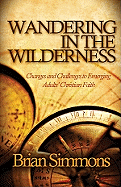 Wandering in the Wilderness: Changes and Challenges to Emerging Adults’ Christian Faith Brian Simmons (Abilene University Press) $14.99 This is a fantastic book, surveying the vast quantity of research done in recent years on the “emerging adulthood” stage. (The term was coined by psychologist Jeffrey Arnett, by the way.) Besides helping us understand the research and get a handle on the common changes emerging adults experience these days, Wandering…helps offer guidelines for how they (and their parents) can navigate those changes. The subtitle explains the them
Wandering in the Wilderness: Changes and Challenges to Emerging Adults’ Christian Faith Brian Simmons (Abilene University Press) $14.99 This is a fantastic book, surveying the vast quantity of research done in recent years on the “emerging adulthood” stage. (The term was coined by psychologist Jeffrey Arnett, by the way.) Besides helping us understand the research and get a handle on the common changes emerging adults experience these days, Wandering…helps offer guidelines for how they (and their parents) can navigate those changes. The subtitle explains the them
e of this book well for it does study the changes and challenges, and it offers useful directives. Study questions make it ideal for a small group (parents, maybe?) How do those in their twenties tend to look at life and faith? Can congregations or church leaders be more aware and sensitive to their concerns? Simmons is a fine author, burdened to know and care about these very things. (His earlier book was called Falling Away: Why Christians Lose Their Faith and What Can Be Done About It.) He holds degrees from Pepperdine and Purdue and lives in Portland.
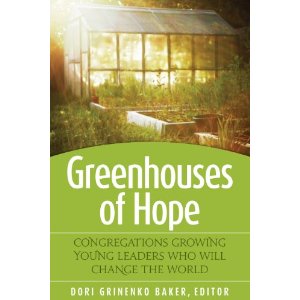 Greenhouses of Hope: Congregations Growing Young Leaders Who Will Change the World edited by Dori Grinenko Baker (Alban Institute) $18.00 Some books just really intrigue me and although not everyone will appreciate them, I just have to tell our readers about them. This is an somewhat odd book—deep, serious, playful, remarkable in many ways, describing congregations, including some multi-ethinic ones, that are doing some unusual stuff to attend to and minister with youth and younger adults. Walt Brueggemann says it is “a primer on how to recover vitality and fidelity of the church” although that may be overstating it. Paker Palmer’s offers a more straight-forward observation—these are “well-tested green-house approaches” and notes that it will make you hopeful for the church and world. (The opening rumination on what constitutes Christian hope is marvelous.) Carol Howard Meritt, whose two books, Tribal Church and Reframing Hope I have written about before, notes that it “provides tools, probing questions, and significant resources to grow hope in your own community.” The rich array of stories here are exceptional: they include essays about “radical welcome” in interfaith dialogue and “converging streams.” One chapter by Presbyterian Sinai Chung explains the Korean idea of “mozying” which means “when the young mentor the younger.” An African-American community leader offers a good chapter on the African word (and the theology implied in it) Sankofa. Joyce Ann Mercer writes a very important chapter looking at two congregations (one Lutheran, one Episcopalian) and how their church conflict effected the youth.
Greenhouses of Hope: Congregations Growing Young Leaders Who Will Change the World edited by Dori Grinenko Baker (Alban Institute) $18.00 Some books just really intrigue me and although not everyone will appreciate them, I just have to tell our readers about them. This is an somewhat odd book—deep, serious, playful, remarkable in many ways, describing congregations, including some multi-ethinic ones, that are doing some unusual stuff to attend to and minister with youth and younger adults. Walt Brueggemann says it is “a primer on how to recover vitality and fidelity of the church” although that may be overstating it. Paker Palmer’s offers a more straight-forward observation—these are “well-tested green-house approaches” and notes that it will make you hopeful for the church and world. (The opening rumination on what constitutes Christian hope is marvelous.) Carol Howard Meritt, whose two books, Tribal Church and Reframing Hope I have written about before, notes that it “provides tools, probing questions, and significant resources to grow hope in your own community.” The rich array of stories here are exceptional: they include essays about “radical welcome” in interfaith dialogue and “converging streams.” One chapter by Presbyterian Sinai Chung explains the Korean idea of “mozying” which means “when the young mentor the younger.” An African-American community leader offers a good chapter on the African word (and the theology implied in it) Sankofa. Joyce Ann Mercer writes a very important chapter looking at two congregations (one Lutheran, one Episcopalian) and how their church conflict effected the youth.
At the end of each of these creatively-written narratives about a particular congregation’s ministry and their contribution to human flourishing, there is a section called Engaging VocationCare Practices and another inviting reflection on “Ethnographic Listening.” It is a really provocative and fun and a useful resource, especially for mainline or progressive congregations and those interested in how congregations reflect on their own sense of call. The creation of Greenhouses of Hope was supported by the Calling Congregations initiative funded by the Fund for Theological Education.
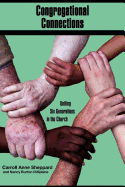 Congregational Connections: Uniting Six Generations in the Church Carroll Anne Sheppard & Nancy Burton Dilliplane (Xlibris) $21.99 This is a brand, spanking new book and it is nearly one of a kind. Much of the research drawing on the work of Howe & Strauss (Generations; The Fourth Turning, Millennials Rising) and other generational cohort theory appropriated for the church is a bit dated and is often done using language and vocabulary and congregational models presuming an evangelical reader. (Think of One Church Four Generations by Gary MacIntosh, for instance, The Millennials by Thomas Rainer or Generation iY by Tim Elmore.) Carroll and Nancy are Episcopalian leaders (one a priest, the other a licensed preacher) from Philadelphia and out of their interest and pastoral work they researched this well. And they draw out the largest picture I’ve yet seen about the distinctives of six generations as they live and serve together in a liturgical parish. I like their inter-generational approach. This is short and incisive, has discussion questions that are very useful and is a fine survey of generational theory that can be used with a vestry, adult education class, or in any setting eager to learn and grow. Congratulations to these friends for making this nice contribution to the health of God’s church.
Congregational Connections: Uniting Six Generations in the Church Carroll Anne Sheppard & Nancy Burton Dilliplane (Xlibris) $21.99 This is a brand, spanking new book and it is nearly one of a kind. Much of the research drawing on the work of Howe & Strauss (Generations; The Fourth Turning, Millennials Rising) and other generational cohort theory appropriated for the church is a bit dated and is often done using language and vocabulary and congregational models presuming an evangelical reader. (Think of One Church Four Generations by Gary MacIntosh, for instance, The Millennials by Thomas Rainer or Generation iY by Tim Elmore.) Carroll and Nancy are Episcopalian leaders (one a priest, the other a licensed preacher) from Philadelphia and out of their interest and pastoral work they researched this well. And they draw out the largest picture I’ve yet seen about the distinctives of six generations as they live and serve together in a liturgical parish. I like their inter-generational approach. This is short and incisive, has discussion questions that are very useful and is a fine survey of generational theory that can be used with a vestry, adult education class, or in any setting eager to learn and grow. Congratulations to these friends for making this nice contribution to the health of God’s church. DISCOUNT
any book mentioned above
2O% off
order here
takes you to the secure Hearts & Minds order form page
just tell us what you want
inquire here
if you have questions or need more information
just ask us what you need to know
Hearts & Minds 234 East Main Street Dallastown, PA 17313 717-246-3333

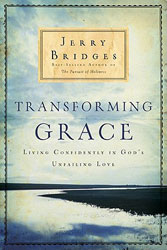 Christ Alone: Living the Gospel Centered Life by Sinclair Ferguson (Reformation Trust) or the several good books coming from
Christ Alone: Living the Gospel Centered Life by Sinclair Ferguson (Reformation Trust) or the several good books coming from 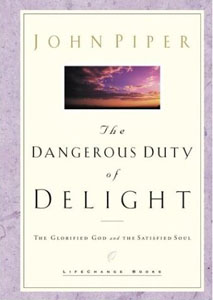 Lewis and a particular sermon of Jonathan Edwards (“The End to Which God Made the World”) Piper over and over (and over) calls us to find God and Christ’s gospel as the great treasure upon which we stake our lives and in which we find our highest joy. He made a name for himself by his thick book Desiring God: Meditations of a Christian Hedonist (Multnomah) making a case for “Christian hedonism” by which he means that we find our greatest joy by making much of God. (“God is most glorified in us when we are most satisfied in Him” he says, a phrase I think which is well worth pondering.) The basic message of that complex book was released in a pocket sized hardback entitled The Dangerous Duty of Delight: The Glorification of God and the Satisfied Soul (Multnomah.) Jesus said we are to find ourselves by losing ourselves for His sake, after all, and Piper makes a lot of sense telling sinners such as we that we are in worse shape than we admit and God’s grace offers so much more than we could expect. This singular passion to exalt Christ can propel us to do great things. “Let goods and kindred go” the famous hymn says. Piper’s call is a dangerous and passionate one, suggesting great risk and sacrifice (he renounces greed and the American dream more than any other conservative evangelical leader.) His inner city church in Minneapolis continues to thrive as a church that stands for this one thing: we are never happier than when God is glorified in us. He is the most insistent voice for a “gospel-centered” worldview than any writer today.
Lewis and a particular sermon of Jonathan Edwards (“The End to Which God Made the World”) Piper over and over (and over) calls us to find God and Christ’s gospel as the great treasure upon which we stake our lives and in which we find our highest joy. He made a name for himself by his thick book Desiring God: Meditations of a Christian Hedonist (Multnomah) making a case for “Christian hedonism” by which he means that we find our greatest joy by making much of God. (“God is most glorified in us when we are most satisfied in Him” he says, a phrase I think which is well worth pondering.) The basic message of that complex book was released in a pocket sized hardback entitled The Dangerous Duty of Delight: The Glorification of God and the Satisfied Soul (Multnomah.) Jesus said we are to find ourselves by losing ourselves for His sake, after all, and Piper makes a lot of sense telling sinners such as we that we are in worse shape than we admit and God’s grace offers so much more than we could expect. This singular passion to exalt Christ can propel us to do great things. “Let goods and kindred go” the famous hymn says. Piper’s call is a dangerous and passionate one, suggesting great risk and sacrifice (he renounces greed and the American dream more than any other conservative evangelical leader.) His inner city church in Minneapolis continues to thrive as a church that stands for this one thing: we are never happier than when God is glorified in us. He is the most insistent voice for a “gospel-centered” worldview than any writer today.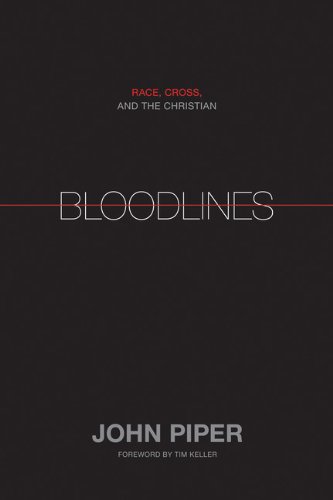 The brand new hardback Bloodlines: Race, Cross and the Christian is, to explain it simply, a quintessentially Piper-esque, gospel-centered view of racial injustice and how the gospel itself can bring about ethnic and racial reconciliation. On several levels and for several reasons I think it is one of the most important books of the year. It may be one of the most significant books Piper has written. It is a book that I hope our more liberally-minded progressive customers who care about social change and racial justice will read and I hope it is a book that our more theologically and socially conservative customers who love inspiring Bible study will also read. It is not the last word on this subject, but his passion and clarity and balance and wisdom make it a very, very useful resource for churches of all sorts. Nearly anyone will find something in it to inform or inspire or shape them. Nearly everyone will find something off-putting or stretching. Nearly everyone will be touched and impressed and some will roll their eyes at a few things. Hey, this is what makes for a great read. You’ll want to underline and mark it up and interact with it too.
The brand new hardback Bloodlines: Race, Cross and the Christian is, to explain it simply, a quintessentially Piper-esque, gospel-centered view of racial injustice and how the gospel itself can bring about ethnic and racial reconciliation. On several levels and for several reasons I think it is one of the most important books of the year. It may be one of the most significant books Piper has written. It is a book that I hope our more liberally-minded progressive customers who care about social change and racial justice will read and I hope it is a book that our more theologically and socially conservative customers who love inspiring Bible study will also read. It is not the last word on this subject, but his passion and clarity and balance and wisdom make it a very, very useful resource for churches of all sorts. Nearly anyone will find something in it to inform or inspire or shape them. Nearly everyone will find something off-putting or stretching. Nearly everyone will be touched and impressed and some will roll their eyes at a few things. Hey, this is what makes for a great read. You’ll want to underline and mark it up and interact with it too. 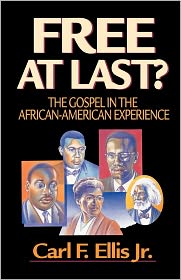 So, Bloodlines by John Piper is different than, but stands alongside, great resources which we’ve stocked for years. It supplements excellent, urgent books like More Than Equals by Chris Rice and Spencer Perkins (IVP), Free at Last by Carl Ellis (IVP), Many Colors: Cultural Intelligence for a Changing Church by Soong-Chan Rah (Moody), Divided by Faith by Michael Emerson, Christian Smith et al (Oxford University Press.) I love Native American Randy Woodley who wrote the very useful, deeply gracious, Living in Color: God’s Passion for Ethnic Diversity (IVP.) How about the splendid book by Tony Campolo & Michael Battle, The Church Enslaved: A Spirituality of Racial Reconciliation (Judson)? And of course there are the many books of John Perkins—if you haven’t read at least one of his, you are missing out. His first one was reissued a few years ago, his own story called Let Justice Roll Down (Regal) although the one he wrote recently with Charles Marsh called Welcoming Justice: God’s Movement Toward Beloved Community (IVP) is so
So, Bloodlines by John Piper is different than, but stands alongside, great resources which we’ve stocked for years. It supplements excellent, urgent books like More Than Equals by Chris Rice and Spencer Perkins (IVP), Free at Last by Carl Ellis (IVP), Many Colors: Cultural Intelligence for a Changing Church by Soong-Chan Rah (Moody), Divided by Faith by Michael Emerson, Christian Smith et al (Oxford University Press.) I love Native American Randy Woodley who wrote the very useful, deeply gracious, Living in Color: God’s Passion for Ethnic Diversity (IVP.) How about the splendid book by Tony Campolo & Michael Battle, The Church Enslaved: A Spirituality of Racial Reconciliation (Judson)? And of course there are the many books of John Perkins—if you haven’t read at least one of his, you are missing out. His first one was reissued a few years ago, his own story called Let Justice Roll Down (Regal) although the one he wrote recently with Charles Marsh called Welcoming Justice: God’s Movement Toward Beloved Community (IVP) is so 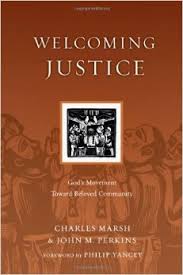 rich I would put it near the top of any reading list.
rich I would put it near the top of any reading list.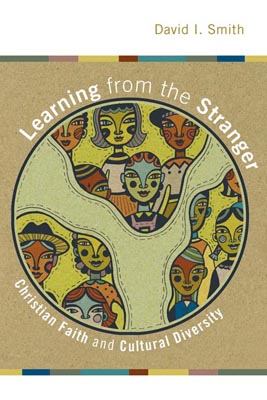 in the Cafeteria by Beverly Daniel Tatum? Or the heavy anti-racism classic recently updated and reissued by Joseph Barndt, Becoming the Anti-Racist Church: Journey Toward Wholeness (Fortress)? I really appreciate the neo-Calvinist worldviewish perspective of foreign language scholar David Smith who wrote Learning from the Stranger: Christian Faith and Cultural Diversity (Eerdmans) as it brings a somewhat scholarly, hospitable bit of research to the conversation. Even more scholarly is the extraordinary and highly reviewed (if dense) work The Christian Imagination: Theology and the Origins of Race by Willie James Jennings that came out last year on Yale University Press. More practically, I hope every church leader or youth worker, especially, has practical educational resources like Cultural Intelligence: Improving Your CQ To Engage Our Multicultural World by David Livermore (Baker), or the practical books on increasing and navigating congregational diversity by Manuel Ortiz (IVP.) Do you know the progressive theologian and Episcopalian church diversity trainer, Eric Law? Or the books by Curtis DeYoung? Or Brenda Salter McNeil? Howard Thurman? Cornel West? None of these standards, though, do quite what Piper does with quite the guts and theological gusto.
in the Cafeteria by Beverly Daniel Tatum? Or the heavy anti-racism classic recently updated and reissued by Joseph Barndt, Becoming the Anti-Racist Church: Journey Toward Wholeness (Fortress)? I really appreciate the neo-Calvinist worldviewish perspective of foreign language scholar David Smith who wrote Learning from the Stranger: Christian Faith and Cultural Diversity (Eerdmans) as it brings a somewhat scholarly, hospitable bit of research to the conversation. Even more scholarly is the extraordinary and highly reviewed (if dense) work The Christian Imagination: Theology and the Origins of Race by Willie James Jennings that came out last year on Yale University Press. More practically, I hope every church leader or youth worker, especially, has practical educational resources like Cultural Intelligence: Improving Your CQ To Engage Our Multicultural World by David Livermore (Baker), or the practical books on increasing and navigating congregational diversity by Manuel Ortiz (IVP.) Do you know the progressive theologian and Episcopalian church diversity trainer, Eric Law? Or the books by Curtis DeYoung? Or Brenda Salter McNeil? Howard Thurman? Cornel West? None of these standards, though, do quite what Piper does with quite the guts and theological gusto.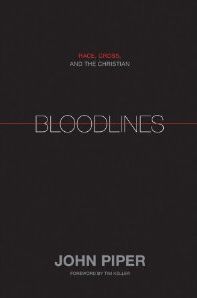 you haven’t read the important work on this by Philip Jenkins or Soong-Chan Rah, he cites them both and it is a good introduction to the global church, useful, too, to frame our peculiar racial burdens in the US by these larger shifts toward non-Western, multi-cultural churches in our lifetime.
you haven’t read the important work on this by Philip Jenkins or Soong-Chan Rah, he cites them both and it is a good introduction to the global church, useful, too, to frame our peculiar racial burdens in the US by these larger shifts toward non-Western, multi-cultural churches in our lifetime.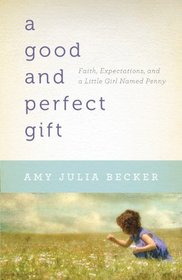
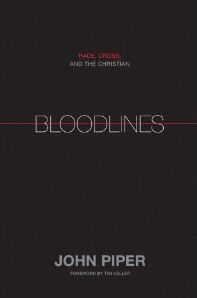
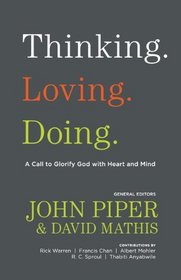
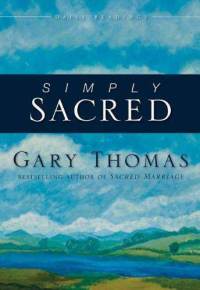
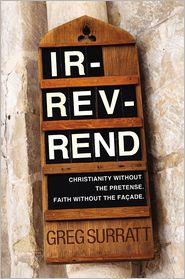
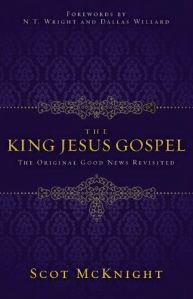
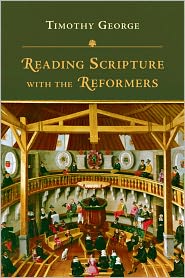
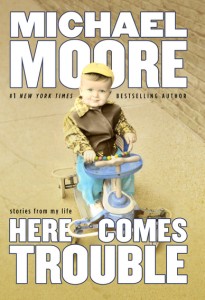
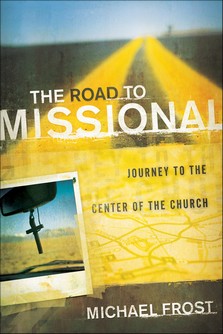
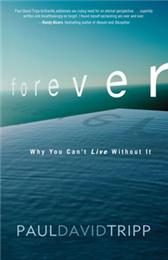
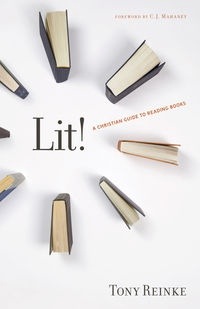
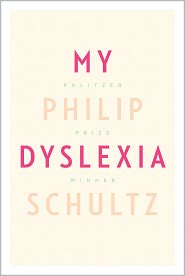
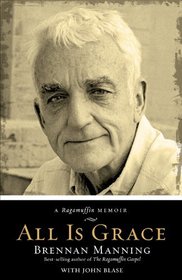
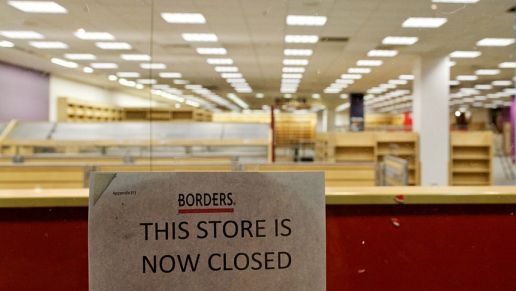
 support those very businesses that invite thought, the investigation of ideas, learning, and that exquisite pleasure of being lost in a story. No, we who are called to the vocation of book-selling are not glad for the demise of Borders. We wish our local colleagues in the book business the very best. Some were true book lovers, themselves poets and writers and I hope they might somehow find a way to stay in the important world of books. Certainly, we need more cheerleaders these days for those lovely rectangles of paper and print.
support those very businesses that invite thought, the investigation of ideas, learning, and that exquisite pleasure of being lost in a story. No, we who are called to the vocation of book-selling are not glad for the demise of Borders. We wish our local colleagues in the book business the very best. Some were true book lovers, themselves poets and writers and I hope they might somehow find a way to stay in the important world of books. Certainly, we need more cheerleaders these days for those lovely rectangles of paper and print.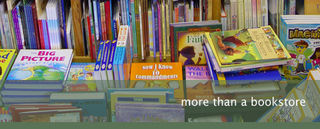

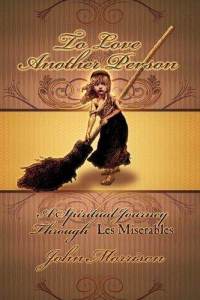 To Love Another Person: A Spiritual Journey Through Les Miserables John Morrison (Zossima Press) $14.99 When pondering some of the deepest things of life these last days—death, justice, forgiveness, compassion, injustice, politics, revolution, faith—I thought of the splendid novel and moving musical Les Mis. There are oodles of books (thank goodness) on C.S. Lewis and Christian studies of Tolkien, faith-based ruminations on all sorts of novels, but this is the only recent, distinctively Christian approach to the themes of Hugo of which I am aware. It is written by a retired Episcopal priest with advanced degrees in literature. What a great idea! Thomas Howard writes that in picking this up we are “sitting at the feet of an excellent teacher, theologian, and literary and drama critic.” Canon Denis Brunelle has degrees in the study of liturgy and medieval theater and he writes, “Hugo’s commentary on the social life and ills of 19th century France is timeless and becomes, through Morrison’s work, a reflection on how we ‘miserable ones’ of today are called to plunge deeper into the realities of God’s presence and love for all.” Yes, a book for our time, and any time. If you haven’t read the great novel, maybe this season is a good one to embark. Morrison will walk you through it.
To Love Another Person: A Spiritual Journey Through Les Miserables John Morrison (Zossima Press) $14.99 When pondering some of the deepest things of life these last days—death, justice, forgiveness, compassion, injustice, politics, revolution, faith—I thought of the splendid novel and moving musical Les Mis. There are oodles of books (thank goodness) on C.S. Lewis and Christian studies of Tolkien, faith-based ruminations on all sorts of novels, but this is the only recent, distinctively Christian approach to the themes of Hugo of which I am aware. It is written by a retired Episcopal priest with advanced degrees in literature. What a great idea! Thomas Howard writes that in picking this up we are “sitting at the feet of an excellent teacher, theologian, and literary and drama critic.” Canon Denis Brunelle has degrees in the study of liturgy and medieval theater and he writes, “Hugo’s commentary on the social life and ills of 19th century France is timeless and becomes, through Morrison’s work, a reflection on how we ‘miserable ones’ of today are called to plunge deeper into the realities of God’s presence and love for all.” Yes, a book for our time, and any time. If you haven’t read the great novel, maybe this season is a good one to embark. Morrison will walk you through it.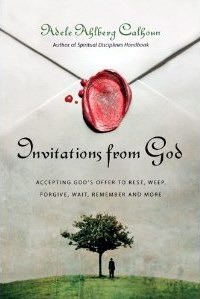 Invitations from God: Accepting God’s Offer to Rest, Weep, Forgive, Wait, Remember, and More Adele Ahlberg Calhoun (IVP/formatio) $15.00 This isn’t brand new and
Invitations from God: Accepting God’s Offer to Rest, Weep, Forgive, Wait, Remember, and More Adele Ahlberg Calhoun (IVP/formatio) $15.00 This isn’t brand new and 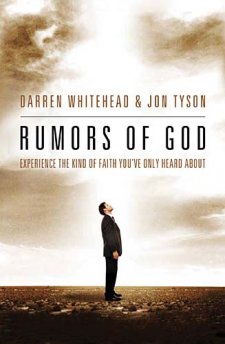 Rumors of God: Experience the Kind of Faith You’ve Only Heard About Darren Whitehead & Jon Tyson (Nelson) $15.99 For some reason I have a bit of an allergy to marketing plans (and book subtitles) that suggest we haven’t even come close to experiencing what the authors have. I don’t like stuff that smacks of formulas or over-promises. It strikes me as prideful and dumb—unless you are trying to reach some perfectly demographed seeker who has heard of faith but has no clue, why imply the prospective reader has no experience of God but has “only heard” about it? Having said that (there!) saying why I was put off by the subtitle of this, let me shout that this book is not at all pompous. It is humble, kind, gentle, insightful, wise, and strikes a perfect tone for seekers, new believers, those who haven’t read a ton of Christian living books or for those who have and want to perhaps move towards a balance and thoughtfulness that was a bit lacking in other such books. This isn’t arrogant or overblown and it isn’t simplistic. And there are rumors out there—in the Bible, for starters–that things can be (as Brueggemann likes to say it, “otherwise.”) Phil Yancey wrote a marvelous book Rumors of Another World and of course my favorite rock star, Bruce Cockburn, wrote a song Rumors of Glory. So the rumor is afoot, and these guys helps explain it. People do seek, and they do find. Their powerful stories attest to this and it is wonderful to read them. This new book is, I believe, one of the best books of its genre: a clear-headed, multi-faceted, mature and accessible overview of vibrant Christian faith, robust and sturdy and enjoyable.
Rumors of God: Experience the Kind of Faith You’ve Only Heard About Darren Whitehead & Jon Tyson (Nelson) $15.99 For some reason I have a bit of an allergy to marketing plans (and book subtitles) that suggest we haven’t even come close to experiencing what the authors have. I don’t like stuff that smacks of formulas or over-promises. It strikes me as prideful and dumb—unless you are trying to reach some perfectly demographed seeker who has heard of faith but has no clue, why imply the prospective reader has no experience of God but has “only heard” about it? Having said that (there!) saying why I was put off by the subtitle of this, let me shout that this book is not at all pompous. It is humble, kind, gentle, insightful, wise, and strikes a perfect tone for seekers, new believers, those who haven’t read a ton of Christian living books or for those who have and want to perhaps move towards a balance and thoughtfulness that was a bit lacking in other such books. This isn’t arrogant or overblown and it isn’t simplistic. And there are rumors out there—in the Bible, for starters–that things can be (as Brueggemann likes to say it, “otherwise.”) Phil Yancey wrote a marvelous book Rumors of Another World and of course my favorite rock star, Bruce Cockburn, wrote a song Rumors of Glory. So the rumor is afoot, and these guys helps explain it. People do seek, and they do find. Their powerful stories attest to this and it is wonderful to read them. This new book is, I believe, one of the best books of its genre: a clear-headed, multi-faceted, mature and accessible overview of vibrant Christian faith, robust and sturdy and enjoyable.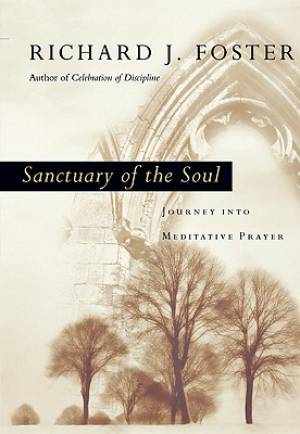 Sanctuary of the Soul: Journey Into Meditative Prayer Richard Foster (IVP/formatio) $16.00 I have had a small hand-sized advanced copy of this for a while and I’ve carried it around, outdoors, to coffee shops and cannot tell you easily how much it has helped. I don’t naturally find silence appealing and I don’t often hear the voice of God. I don’t take the needed time and when I do it isn’t very fruitful. This book reminded me of much and taught some new things.
Sanctuary of the Soul: Journey Into Meditative Prayer Richard Foster (IVP/formatio) $16.00 I have had a small hand-sized advanced copy of this for a while and I’ve carried it around, outdoors, to coffee shops and cannot tell you easily how much it has helped. I don’t naturally find silence appealing and I don’t often hear the voice of God. I don’t take the needed time and when I do it isn’t very fruitful. This book reminded me of much and taught some new things. 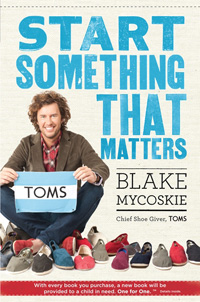 Start Something That Matters Blake Mycoskie (Spiegel & Grau) $22.00 One of the things that was nice about the 9-11 coverage was the cutaways and human interest stories of people doing good work, volunteerism, thousand points of lights and the like. One of those stories, I forget which one, inspired me to tell you about this book by the founder of TOMS shoes. I suppose you know that books about upstart entrepreneurs are often inspiring, can teach us a lot about getting involved, following our dreams, taking chances, solving problems, making a difference, and they are also, I suppose, nearly a dime a dozen. As one who enjoys trying to motivate others, equipping folks to be more than they are, who feels called to promote books that educate and inform, I could write about these sorts of books often, but they often seem a bit out of reach. Sure we can learn much from the founder of IBM or Starbucks, but, really. Who of us can do that? (The founder of Zappos has a cool book, Delivering Happiness and started a foundation to
Start Something That Matters Blake Mycoskie (Spiegel & Grau) $22.00 One of the things that was nice about the 9-11 coverage was the cutaways and human interest stories of people doing good work, volunteerism, thousand points of lights and the like. One of those stories, I forget which one, inspired me to tell you about this book by the founder of TOMS shoes. I suppose you know that books about upstart entrepreneurs are often inspiring, can teach us a lot about getting involved, following our dreams, taking chances, solving problems, making a difference, and they are also, I suppose, nearly a dime a dozen. As one who enjoys trying to motivate others, equipping folks to be more than they are, who feels called to promote books that educate and inform, I could write about these sorts of books often, but they often seem a bit out of reach. Sure we can learn much from the founder of IBM or Starbucks, but, really. Who of us can do that? (The founder of Zappos has a cool book, Delivering Happiness and started a foundation to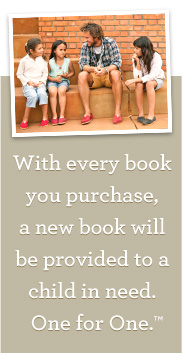 success” (as he puts it) and to make a difference in a hurting world. Look, I like TOMS, and like this startup vibe and I even like the graphic appeal of this handsome book. Start Something That Matters is for you, or someone you know. In the post 9-11 world, one thing is certain: folks are eager to get involved, to do something bigger than they might have before. The entrepreneurial spirit is alive and well and many people, including people of faith, are allowing God to lead them to good things, missional endeavors, ministries, classes, programs, ways to love and serve and care and give God the glory as the love is spread. This is a fun book, but more, it could light the fire under you or somebody you know. (And, with every book you purchase, natur
success” (as he puts it) and to make a difference in a hurting world. Look, I like TOMS, and like this startup vibe and I even like the graphic appeal of this handsome book. Start Something That Matters is for you, or someone you know. In the post 9-11 world, one thing is certain: folks are eager to get involved, to do something bigger than they might have before. The entrepreneurial spirit is alive and well and many people, including people of faith, are allowing God to lead them to good things, missional endeavors, ministries, classes, programs, ways to love and serve and care and give God the glory as the love is spread. This is a fun book, but more, it could light the fire under you or somebody you know. (And, with every book you purchase, natur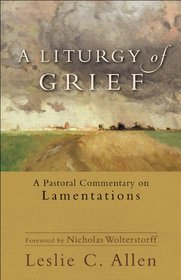 A Liturgy of Grief: A Pastoral Commentary on Lamentations Leslie C. Allen (BakerAcademic) $21.99 Even as he was becoming a senior Old Testament professor at Fuller Theological Seminary, Allen served (and continues to serve) as a hospital chaplain for over 10 years. This is the first clue that this Biblical scholar is well acquainted with grief. A scholar who does his exegesis through tears is to be trusted, I’d say. Nicholas Wolterstorff writes of this splendid new book that it “is at one and the same time an important contribution to our understanding of and dealing with grief and an important contribution to our understanding of one of the supreme pieces of literature in the Old Testament.” Other scholars of the Hebrew Bible concur (M. Daniel Carroll R. of Denver and Tremper Longman, for instance.) Are you heavy of heart? Do you do caregiving for the hurting? Do you preach or teach those who need to hear an affirmation of their need for rituals of grief? I don’t know what those churches who call their contemporary worship services “celebrations” will do this week, but this book could help.
A Liturgy of Grief: A Pastoral Commentary on Lamentations Leslie C. Allen (BakerAcademic) $21.99 Even as he was becoming a senior Old Testament professor at Fuller Theological Seminary, Allen served (and continues to serve) as a hospital chaplain for over 10 years. This is the first clue that this Biblical scholar is well acquainted with grief. A scholar who does his exegesis through tears is to be trusted, I’d say. Nicholas Wolterstorff writes of this splendid new book that it “is at one and the same time an important contribution to our understanding of and dealing with grief and an important contribution to our understanding of one of the supreme pieces of literature in the Old Testament.” Other scholars of the Hebrew Bible concur (M. Daniel Carroll R. of Denver and Tremper Longman, for instance.) Are you heavy of heart? Do you do caregiving for the hurting? Do you preach or teach those who need to hear an affirmation of their need for rituals of grief? I don’t know what those churches who call their contemporary worship services “celebrations” will do this week, but this book could help.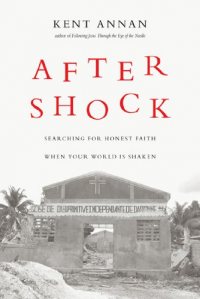 After Shock: Searching for Honest Faith When Your World Is Shaken Kent Annan (likewise/IVP) $15.00 I mentioned in my previous post a few books that might serve us well as we talk together about the floods and natural disasters that have hit so many. There was one book I considered mentioning but wanted to hold off listing it until I could commend it here. It is a very special book. While After Shock was written in the aftermath of the horrific earthquake in Haiti a year and a half ago, it could also serve as a serious reminder of what it is like to have faith shaken after any sort of rending crisis. Whether your anguish is over a neighborhood shooting or a family cancer that has rocked your world; whether you are led to doubt God’s goodness after a natural disaster like a tornado or flood or whether this week’s 9-11 recollections uncover deep anguish in your soul, this book will speak honestly to you. You see, Kent was himself a passionate missionary serving the poorest of the poor in Haiti (and he had written an excellent book about Christ’s call to serve others, one we often recommended, Following Jesus Through the Eye of the Needle: Living Fully, Loving Dangerously; likewise/IVP; $15.00.) He worked hard on that one, editing carefully, as authors will, and worked to make it interesting and compelling.) After the earthquake, Kent told me, this second book just poured out of him. There was little time to ponder, no time for re-writes. The wonderful, edgy imprint, likewise, wanted a raw and honest appraisal of how to cope when, as the subtitle suggests, the ground below your feet is rocked. If you are coping with any sort of trauma or you just wonder how in the world to make sense of a world gone awry, this book is a wonderful conversation partner and Kent will be a good companion in your pilgrimage on the way towards new hope.
After Shock: Searching for Honest Faith When Your World Is Shaken Kent Annan (likewise/IVP) $15.00 I mentioned in my previous post a few books that might serve us well as we talk together about the floods and natural disasters that have hit so many. There was one book I considered mentioning but wanted to hold off listing it until I could commend it here. It is a very special book. While After Shock was written in the aftermath of the horrific earthquake in Haiti a year and a half ago, it could also serve as a serious reminder of what it is like to have faith shaken after any sort of rending crisis. Whether your anguish is over a neighborhood shooting or a family cancer that has rocked your world; whether you are led to doubt God’s goodness after a natural disaster like a tornado or flood or whether this week’s 9-11 recollections uncover deep anguish in your soul, this book will speak honestly to you. You see, Kent was himself a passionate missionary serving the poorest of the poor in Haiti (and he had written an excellent book about Christ’s call to serve others, one we often recommended, Following Jesus Through the Eye of the Needle: Living Fully, Loving Dangerously; likewise/IVP; $15.00.) He worked hard on that one, editing carefully, as authors will, and worked to make it interesting and compelling.) After the earthquake, Kent told me, this second book just poured out of him. There was little time to ponder, no time for re-writes. The wonderful, edgy imprint, likewise, wanted a raw and honest appraisal of how to cope when, as the subtitle suggests, the ground below your feet is rocked. If you are coping with any sort of trauma or you just wonder how in the world to make sense of a world gone awry, this book is a wonderful conversation partner and Kent will be a good companion in your pilgrimage on the way towards new hope.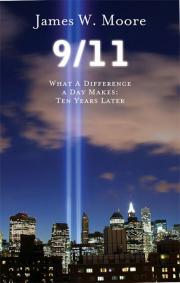 9/11: What a Difference a Day Makes: Ten Years Later James W. Moore (Abingdon) $7.50 I wanted to list this one because it is so very clear, simple, concise and inspirational. James Moore is a best-selling author of oodles of upbeat, clever books, a great storyteller and a fine United Methodist Bible teacher. This just a bit larger than pocket-sized paperback is useful for anyone who is stressed who needs to be reminded how God is with us (even in the turbulence–you have to read that chapter inspired by a great illustration.) He has a good, common-sense chapter on why religion can be a force for good and not evil, and how we can recall the stories of 9-11 to find comfort and hope. The last chapter is a pleasant reminder–or is it a plea?—that a shared experience like this can bind us together as we have shared sorrow and shared resolved. United we stand, in shared love. Nice.
9/11: What a Difference a Day Makes: Ten Years Later James W. Moore (Abingdon) $7.50 I wanted to list this one because it is so very clear, simple, concise and inspirational. James Moore is a best-selling author of oodles of upbeat, clever books, a great storyteller and a fine United Methodist Bible teacher. This just a bit larger than pocket-sized paperback is useful for anyone who is stressed who needs to be reminded how God is with us (even in the turbulence–you have to read that chapter inspired by a great illustration.) He has a good, common-sense chapter on why religion can be a force for good and not evil, and how we can recall the stories of 9-11 to find comfort and hope. The last chapter is a pleasant reminder–or is it a plea?—that a shared experience like this can bind us together as we have shared sorrow and shared resolved. United we stand, in shared love. Nice. 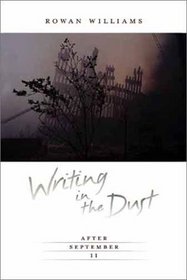 Writing in the Dust: After September 11 Rowan Williams (Eerdmans; 2002) $12.00 It is well known that a publisher can rush a book to press in nearly miraculous speed. When it is important, sometimes, this happens, and in the fall of 2001, there was a real need for a reliable and mature voice from within the mainstream Christian tradition addressing the horrible attack and the state of the world. There had been awful things said about the attack, and even those with well-grounded faith traditions felt confusion, grief, and anger (at the killers, of course, at Al Qaeda and militant Islam, at the politics of those years–each of us for our own reasons—and even at how some in the faith community hijacked the tragedy of the event seemingly for their own ignoble purposes.) I needn’t tell you that times were pretty awful and many looked to churches to offer words of insight and hope.
Writing in the Dust: After September 11 Rowan Williams (Eerdmans; 2002) $12.00 It is well known that a publisher can rush a book to press in nearly miraculous speed. When it is important, sometimes, this happens, and in the fall of 2001, there was a real need for a reliable and mature voice from within the mainstream Christian tradition addressing the horrible attack and the state of the world. There had been awful things said about the attack, and even those with well-grounded faith traditions felt confusion, grief, and anger (at the killers, of course, at Al Qaeda and militant Islam, at the politics of those years–each of us for our own reasons—and even at how some in the faith community hijacked the tragedy of the event seemingly for their own ignoble purposes.) I needn’t tell you that times were pretty awful and many looked to churches to offer words of insight and hope. Refractions: A Journey of Faith, Art and Culture Makoto Fujimura (NavPress) $24.99 Over the last twenty or so years Mako has worked hard at his abstract painting craft, has written and spoken widely about a Christian view of aesthetics, and has helped organize an extraordinary organization (
Refractions: A Journey of Faith, Art and Culture Makoto Fujimura (NavPress) $24.99 Over the last twenty or so years Mako has worked hard at his abstract painting craft, has written and spoken widely about a Christian view of aesthetics, and has helped organize an extraordinary organization (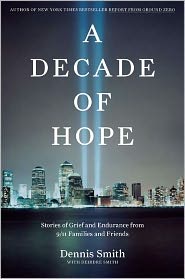 A Decade of Hope: Stories of Grief and Endurance From 9/11 Families and Friends Dennis Smith (Viking) $26.95 Everyone knows about the heroic bravery and self-sacrifice of so many first responders and fire fighters but few have followed their stories with the care and passion as Dennis Smith, whose Report From Ground Zero was the definitive account of those horrible first hours, certainly the most appreciated, well written, heart-stopping narrative of the rescue efforts. Written a few years after the attack it was a beautiful way to juxtapose those who died trying to save lives and the brutality of mass murder. Smith was a fire-fighter in New York and has been on the board of Tribute, the interim memorial at the World Trade Center. These new stories, based on years of diligent interviewing bring us important insight about how these families of rescue workers and victims have fared in the last decade, allowing their stories to put us in their shoes and finally give us a portrait of hope.
A Decade of Hope: Stories of Grief and Endurance From 9/11 Families and Friends Dennis Smith (Viking) $26.95 Everyone knows about the heroic bravery and self-sacrifice of so many first responders and fire fighters but few have followed their stories with the care and passion as Dennis Smith, whose Report From Ground Zero was the definitive account of those horrible first hours, certainly the most appreciated, well written, heart-stopping narrative of the rescue efforts. Written a few years after the attack it was a beautiful way to juxtapose those who died trying to save lives and the brutality of mass murder. Smith was a fire-fighter in New York and has been on the board of Tribute, the interim memorial at the World Trade Center. These new stories, based on years of diligent interviewing bring us important insight about how these families of rescue workers and victims have fared in the last decade, allowing their stories to put us in their shoes and finally give us a portrait of hope. 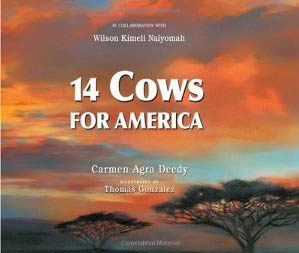 Cows for America Carmen Agra Deedy, illustrated by Thomas Gonzalez (Peachtree) $17.95 This may be one of the most stunning picture books in years—both the breath-taking art done by a Cuban illustrator and the sheer power of the story that is both sentimental and incredibly weighty. After the horrible bombings of 9-11, word got back to some Maasai tribesman in rural Kenya about this tragedy in the United States. (One of their young men had been studying in the states and was at United Nations students meeting and saw the towers fall.) They could hardly imagine (literally) what it meant to lose skyscrapers and that many lives, from a fireball that hot, but they understood that it was a large, large loss. Through a child’s idea, they wanted to help In their culture a cow is a sign of life, literally and mythically, and an elder tribesman was dispatched to find the American ambassador. The tribe wanted to give the United States people a cow. (This is unprecedented—they would seldom give such a prized possession to strangers.) A few more were donated by other poor Maasai warriors—again, these are their most prized possessions, and were offered as profound act of friendship to a grieving people. Can you imagine the ambassador wondering what to do with this beautiful gift of 14 bovine? When the story became known, Wilson Kimeli Naiyomah (the younger man in the tribe who was studying in the U.S. who first told the tribe the story of what he saw) was featured on Oprah, who helped fund his obtaining a science degree from Stanford, and was awarded a Rotary Club Peace Fellowship; he is soon to take up a degree in international peace studies. This art and text in this book is breath-takingly wonderful, capturing well the mood of this genous tale, and we highly, highly recommend it. It is an episode and a book that truly deserves to be widely, widely known.
Cows for America Carmen Agra Deedy, illustrated by Thomas Gonzalez (Peachtree) $17.95 This may be one of the most stunning picture books in years—both the breath-taking art done by a Cuban illustrator and the sheer power of the story that is both sentimental and incredibly weighty. After the horrible bombings of 9-11, word got back to some Maasai tribesman in rural Kenya about this tragedy in the United States. (One of their young men had been studying in the states and was at United Nations students meeting and saw the towers fall.) They could hardly imagine (literally) what it meant to lose skyscrapers and that many lives, from a fireball that hot, but they understood that it was a large, large loss. Through a child’s idea, they wanted to help In their culture a cow is a sign of life, literally and mythically, and an elder tribesman was dispatched to find the American ambassador. The tribe wanted to give the United States people a cow. (This is unprecedented—they would seldom give such a prized possession to strangers.) A few more were donated by other poor Maasai warriors—again, these are their most prized possessions, and were offered as profound act of friendship to a grieving people. Can you imagine the ambassador wondering what to do with this beautiful gift of 14 bovine? When the story became known, Wilson Kimeli Naiyomah (the younger man in the tribe who was studying in the U.S. who first told the tribe the story of what he saw) was featured on Oprah, who helped fund his obtaining a science degree from Stanford, and was awarded a Rotary Club Peace Fellowship; he is soon to take up a degree in international peace studies. This art and text in this book is breath-takingly wonderful, capturing well the mood of this genous tale, and we highly, highly recommend it. It is an episode and a book that truly deserves to be widely, widely known. 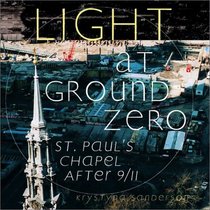 Light at Ground Zero: St. Paul’s Chapel After 9/11 Krystyna Sanderson (Square Halo Press) $15.99 At the very heart of the hell that was Ground Zero on the day of September 11, 2001, and the hard months following, stands St. Paul’s Episcopal Church, just yards away from the destroyed Building 5 of the World Trade Center. Hurrying from her home in Greenwich Village, photographer Krystyna Sanderson headed to lower Manhattan amidst the smoke and dust to help with rescue efforts. In the first paragraph of the introduction to this collection of photographs–a piece which still causes me to choke up, even though I’ve read it numerous times–she tells of how amazed she was that her church was not destroyed. “Except for a layer of ash and soot, the building survived unscathed. Many proclaimed that ‘St. Paul’s had been spared.’ It seemed clear to me that if this was true, it was not because we were holier than anyone who died across the street; it was because we now had a big job to do.”
Light at Ground Zero: St. Paul’s Chapel After 9/11 Krystyna Sanderson (Square Halo Press) $15.99 At the very heart of the hell that was Ground Zero on the day of September 11, 2001, and the hard months following, stands St. Paul’s Episcopal Church, just yards away from the destroyed Building 5 of the World Trade Center. Hurrying from her home in Greenwich Village, photographer Krystyna Sanderson headed to lower Manhattan amidst the smoke and dust to help with rescue efforts. In the first paragraph of the introduction to this collection of photographs–a piece which still causes me to choke up, even though I’ve read it numerous times–she tells of how amazed she was that her church was not destroyed. “Except for a layer of ash and soot, the building survived unscathed. Many proclaimed that ‘St. Paul’s had been spared.’ It seemed clear to me that if this was true, it was not because we were holier than anyone who died across the street; it was because we now had a big job to do.”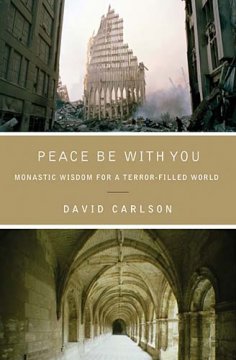 Peace Be With You: Monastic Wisdom for a Terror-Filled World David Carlson (Nelson) $15.99 Of the several books I’ve pondered this month around this theme this one stands out. It is based on a fabulous idea, rooted in a fabulous question: do monks and nuns have anything to say to us about how to think about the horror of 9-11 and how to respond in these times? This new book was envisioned, it seems, nearly a decade ago when the author, a Baptist college professor who had converted to Orthodoxy, longed for greater clarity about his own unsettled spirit after the attacks of 9-11. The handsome cover art of this paperback tells us of his journey: there is a stark picture of Ground Zero rubble on the top half of the cover design, while the lower half of the cover is a stunning photo of the walkway of a historic old abbey. Indeed, the question of Professor Carlson is about the relationship of the two: what insight might monks and nuns, sequestered at their monasteries, have on how we remember–and respond to, even now–the terrors of that day?
Peace Be With You: Monastic Wisdom for a Terror-Filled World David Carlson (Nelson) $15.99 Of the several books I’ve pondered this month around this theme this one stands out. It is based on a fabulous idea, rooted in a fabulous question: do monks and nuns have anything to say to us about how to think about the horror of 9-11 and how to respond in these times? This new book was envisioned, it seems, nearly a decade ago when the author, a Baptist college professor who had converted to Orthodoxy, longed for greater clarity about his own unsettled spirit after the attacks of 9-11. The handsome cover art of this paperback tells us of his journey: there is a stark picture of Ground Zero rubble on the top half of the cover design, while the lower half of the cover is a stunning photo of the walkway of a historic old abbey. Indeed, the question of Professor Carlson is about the relationship of the two: what insight might monks and nuns, sequestered at their monasteries, have on how we remember–and respond to, even now–the terrors of that day? 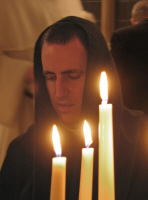 struggles with bouts of depression and carries great remorse about the mean-spiritedness of much of our political discourse (especially regarding our relationship with Islam.) Surely, he thinks, these men and women whose vocation is to pray and who know silence, who worship often and serve humbly, have nurtured habits of heart that will allow them to speak well into our needy times. He is both grateful for such good insights and happy to report much of the Christ-like character these prayerful saints exhibit. Hearing their take on international affairs, and the soul of our nation, is powerful. But, as we all should surely know, monks and nuns are not in a holy bubble; they have internet and watch the news, and often live lively lives engaged in local neighborhoods. (I enjoyed one chapter where Carlson was spending time in a monastery whose urban mission included a bread baking business and cafe. Working with the general public isn’t the most “devotional” space for cultivating deep mystery, often, yet these men used their daily frustrations to guide them to greater Christ-likeness. Men and women called to these religious vows are human, and struggle with the same quandaries of discipleship we all do when it comes to questions of forgiveness, mercy, peace and justice, caring about our daily issues and wanting to be aware of global concerns.
struggles with bouts of depression and carries great remorse about the mean-spiritedness of much of our political discourse (especially regarding our relationship with Islam.) Surely, he thinks, these men and women whose vocation is to pray and who know silence, who worship often and serve humbly, have nurtured habits of heart that will allow them to speak well into our needy times. He is both grateful for such good insights and happy to report much of the Christ-like character these prayerful saints exhibit. Hearing their take on international affairs, and the soul of our nation, is powerful. But, as we all should surely know, monks and nuns are not in a holy bubble; they have internet and watch the news, and often live lively lives engaged in local neighborhoods. (I enjoyed one chapter where Carlson was spending time in a monastery whose urban mission included a bread baking business and cafe. Working with the general public isn’t the most “devotional” space for cultivating deep mystery, often, yet these men used their daily frustrations to guide them to greater Christ-likeness. Men and women called to these religious vows are human, and struggle with the same quandaries of discipleship we all do when it comes to questions of forgiveness, mercy, peace and justice, caring about our daily issues and wanting to be aware of global concerns. 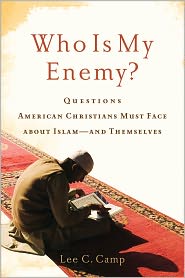 Who Is My Enemy? Questions American Christians Must Face About Islam—and Themselves Lee C. Camp (Brazos) $17.99 I will be doing a larger more substantive review, Lord willing, of this remarkable brand new book but I simply had to list it now. It may be one of the most interesting and informative and important books of the whole year (and I mean that!) Camp is known for at least two things. First he developed a bit of a following when he released a very powerful and exceptionally well-reviewed overview of serious Christian discipleship called Mere Discipleship: Radical Christianity in a Rebellious World (2nd edition) (Brazos; $21.99)&nbs
Who Is My Enemy? Questions American Christians Must Face About Islam—and Themselves Lee C. Camp (Brazos) $17.99 I will be doing a larger more substantive review, Lord willing, of this remarkable brand new book but I simply had to list it now. It may be one of the most interesting and informative and important books of the whole year (and I mean that!) Camp is known for at least two things. First he developed a bit of a following when he released a very powerful and exceptionally well-reviewed overview of serious Christian discipleship called Mere Discipleship: Radical Christianity in a Rebellious World (2nd edition) (Brazos; $21.99)&nbs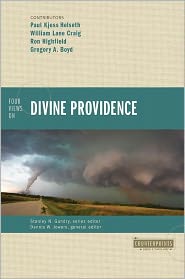 know? From us, to them? Dare we praise God when our place seemed spared, giving God credit for that, only to find terrible damage done elsewhere? This stuff is a mystery and we dare not be glib. If you want to study this question–does God cause all things? Direct all things? Does God limit His own control?— the best resource came out just recently and shows several perspectives. It is called Four Views on Divine Providence (in the excellent Counterpoints series) edited by Stanley Gundry (Zondervan; $19.99.) It includes four views, and each author replies to the others, too. What a huge question, what a vexing matter, and what a fine collection of able scholars to argue their respective views. A lovely last concluding essays looks at the bigger picture, the areas where the authors agree and a bit about the strengths each view carries.
know? From us, to them? Dare we praise God when our place seemed spared, giving God credit for that, only to find terrible damage done elsewhere? This stuff is a mystery and we dare not be glib. If you want to study this question–does God cause all things? Direct all things? Does God limit His own control?— the best resource came out just recently and shows several perspectives. It is called Four Views on Divine Providence (in the excellent Counterpoints series) edited by Stanley Gundry (Zondervan; $19.99.) It includes four views, and each author replies to the others, too. What a huge question, what a vexing matter, and what a fine collection of able scholars to argue their respective views. A lovely last concluding essays looks at the bigger picture, the areas where the authors agree and a bit about the strengths each view carries. 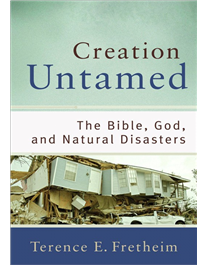 There is no issue in contemporary faith more vexing than how we are to understand God’s will and action in the event of natural disasters like tsunamis and hurricanes, wildfires and floods. Fortunately for readers, there is no more reliable guide for thinking biblically about these issues than Terence Fretheim. In this thoughtful and compact volume, Fretheim helps us not only to see clearly our own created vulnerability but also to encounter biblical testimony to a God who becomes vulnerable with us. –Bruce C. Birch, Wesley Theological Seminary
There is no issue in contemporary faith more vexing than how we are to understand God’s will and action in the event of natural disasters like tsunamis and hurricanes, wildfires and floods. Fortunately for readers, there is no more reliable guide for thinking biblically about these issues than Terence Fretheim. In this thoughtful and compact volume, Fretheim helps us not only to see clearly our own created vulnerability but also to encounter biblical testimony to a God who becomes vulnerable with us. –Bruce C. Birch, Wesley Theological Seminary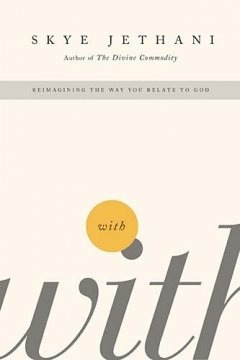 I suppose that “with” may have been my operative word in part because it is important to my own heart. Knowing God’s presence and experiencing God’s daily graces seems most important so we might live wisely and glorify God in all things. Immanuel, God-with-us may be enough. But it is also because I had just finished a splendid book, a book called With by Skye Jethani (Nelson; $15.99.) It was an easy read, enjoyable and uplifting. And it taught me a lot, reminded me of much, and gave a new handle to discuss spirituality and discipleship. I think many H&M friends will want to get it. It is very nicely done and, importantly, it really is that helpful. Let me explain.
I suppose that “with” may have been my operative word in part because it is important to my own heart. Knowing God’s presence and experiencing God’s daily graces seems most important so we might live wisely and glorify God in all things. Immanuel, God-with-us may be enough. But it is also because I had just finished a splendid book, a book called With by Skye Jethani (Nelson; $15.99.) It was an easy read, enjoyable and uplifting. And it taught me a lot, reminded me of much, and gave a new handle to discuss spirituality and discipleship. I think many H&M friends will want to get it. It is very nicely done and, importantly, it really is that helpful. Let me explain.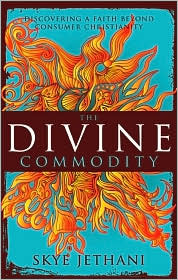 pages of full color plates of Van Gogh paintings that he uses to make his valuable, wise, provocative points. (Remember what Nouwen did for the story of the Prodigal Son by using Rembrandt? Jethani isn’t that contemplative and his Van Gogh ruminations are not utterly central to the book, but it is that sort of thing. Very effective.) Walter Brueggemann said of it, “This is as good a book on the pervasive power of consumerism as I have read.” Mark Batterson, pastor of National Community Church, predicted that “this book will challenge your assumptions in a way that will result in deeper-held convictions.” By using the Bible, church history and his own very contemporary narration (and a lot of well placed and sometimes surprising, wonderful, citations of great books and authors) it invited us to be liberated by surrender; by engaging in spiritual practices with holy imagination we can resist the world’s consumerist/marketing pull which has been distorting faith and church life for at the last few decades, at least. We can be free to know God truly when we stop making God into a commodity. This is a book that deserves to be known better than it is–it is beautifully written, very creative, expansive and very thoughtful.
pages of full color plates of Van Gogh paintings that he uses to make his valuable, wise, provocative points. (Remember what Nouwen did for the story of the Prodigal Son by using Rembrandt? Jethani isn’t that contemplative and his Van Gogh ruminations are not utterly central to the book, but it is that sort of thing. Very effective.) Walter Brueggemann said of it, “This is as good a book on the pervasive power of consumerism as I have read.” Mark Batterson, pastor of National Community Church, predicted that “this book will challenge your assumptions in a way that will result in deeper-held convictions.” By using the Bible, church history and his own very contemporary narration (and a lot of well placed and sometimes surprising, wonderful, citations of great books and authors) it invited us to be liberated by surrender; by engaging in spiritual practices with holy imagination we can resist the world’s consumerist/marketing pull which has been distorting faith and church life for at the last few decades, at least. We can be free to know God truly when we stop making God into a commodity. This is a book that deserves to be known better than it is–it is beautifully written, very creative, expansive and very thoughtful. 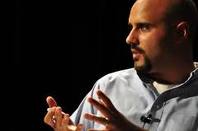 very serious teaching. I hate to say this is a “worldview” book as some don’t find that to be a compelling selling point. But surely how we think about God, and how God works in the world, and what sort of relationship we have with God is a core aspect of the most basic thing we can know about “life after Eden” (as he describes the human condition in the first chapter.)
very serious teaching. I hate to say this is a “worldview” book as some don’t find that to be a compelling selling point. But surely how we think about God, and how God works in the world, and what sort of relationship we have with God is a core aspect of the most basic thing we can know about “life after Eden” (as he describes the human condition in the first chapter.)